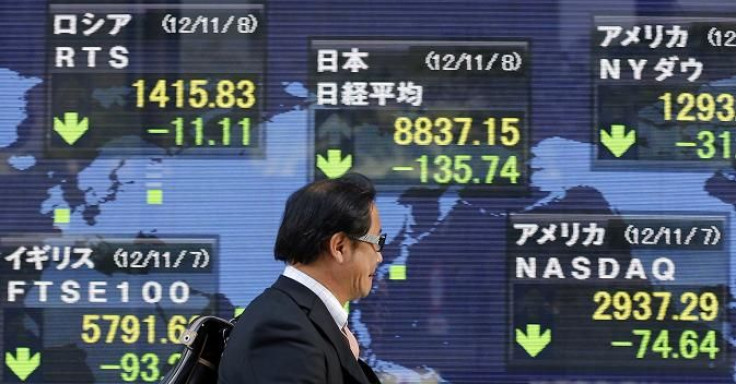Japanese Election Seen Opening The Door For Massive Money-Printing

Upcoming parliamentary elections in Japan will likely end up putting a government in place that will set the yen-printing machines into overdrive, market watchers are predicting, following various comments on monetary and economic policy by the head of the poll-leading Liberal Democratic Party.
“An LDP win could signal a loss of independence for the Bank of Japan. [Party leader] Shinzo Abe is a vocal critic and wants it to engineer inflation of 3 percent, three times the bank’s current target, by printing unlimited amounts of yen,” David Rea, an economist for research firm Capital Economics, wrote in a note Friday.
“The bank has already come under much political pressure this year to ease monetary policy, and a new government could try to exert even greater influence, including changing the Bank of Japan Act.”
The view that a victory by Abe’s party, which is being seen as all but a given in Japan, would lead to even looser monetary policy, which was supported this week by several statements from the candidate. Thursday, Abe noted the Japanese central bank should be offering less than zero percent interest on deposits in order to spur consumption, explaining how "if a commercial bank leaves reserves at the BOJ, they get 0.1 percent. ... This is too high.”
Earlier in the week, Abe had noted he advocated the Bank of Japan setting a higher inflation target than its current benchmark of 1 percent “although I'll leave it to the experts to debate whether it should be 2 percent or 3 percent.”
“It must ease unlimitedly to achieve that target. Only then would markets react," he added.
Indeed, markets were already reacting to Abe’s words and the scenario they foretold, with stocks and bonds in Tokyo rising on a dramatically weaker yen over the past two days.
On Thursday, the yen saw its sharpest drop in six months as the yen-to-dollar exchange rate jumped above ¥81 for the first time since April 27.
The currency's move helped nudge the Nikkei Stock Average of 225 companies up 1.9 percent to 8g,829.72, while long-dated bonds saw a similar rally.
“The market is salivating over the free money," said Nicholas Smith, an equity strategist at Hong Kong-based brokerage CLSA told the Wall Street Journal.
Not everyone was ready to jump on the rally wagon, however, with some questioning how much monetary easing would actually be a benefit to Japan -- the previous rounds have fallen woefully short of expectations, and the last, eighth iteration caused rates to rise when it was announced -- given other considerations.
Among other things, analysts are worried Abe’s party, which is more nationalistic than the party atop the current government, could worsen relations with China, already at a low following territorial and commercial disputes. There’s also the fact that further easing and the loss of central bank independence could be seen by markets as a sign the Japanese government is monetizing its debt.
Noting the sudden drop in the yen Thursday, Jens Nordvig, global head of G10 strategy at Nomura Securities in New York, told Reuters his firm had “been positioned for this trade in both spot and options.
“The question now is how to balance short-term and medium-term considerations," he said.
© Copyright IBTimes 2024. All rights reserved.











